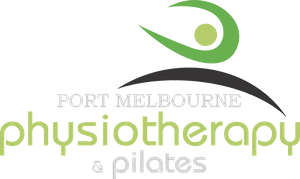Self care over summer:
How lovely was summer? The warm weather and sunshine made it feel like we had a summer this year. Many people I have spoken to recently have reflected upon what summer meant for them. A slower pace, a moment in the sunshine and maybe some ‘time off’ too. Others noted a break from the school runs, taking leave from work or even a decrease in the weekend commitments. These may be kids’ parties, sport and socialising. Often taking time out from the busy day to day routine means we fill our days with activities we really enjoy. Such things may include spending time with our families and loved ones, or engaging in activities we enjoy like reading a book, going for a walk and eating an ice cream while we enjoy the warm weather.
Reflection:
Let’s pause just for a moment. Now bring your attention something that made you smile this summer. Maybe even acknowledging something you enjoyed. Was there a fun activity or something that helped you feel grounded and relaxed? Even a project or goal you achieved? Maybe it was time spent with people you care about and whose company you enjoyed that has come to mind.
Reflection is powerful in helping us identify what is important to us. How we spend our summer tells us so much about how we like to relax and connect. It also tells us what our self care can look like. Because self care is different for everyone, it’s important you are in tune with what works for you. Sometimes it’s about connecting with family and friends. At other times, it’s about having alone time. Self care can also be about setting aside time for ‘life admin’ to get things off the to-do list and feel productive.
Filling your own cup:
What we needed practically, socially and emotionally to take care of ourselves changes with time. It can be dependent on family and commitments, the availability of time and with the stages of life we find ourselves in. Regardless of this, good self care is necessary for good wellbeing and mental health. No one can drink from an empty cup, so we need to regularly invest in ourselves. As Michelle Obama so eloquently said, “we need to do a better job of putting ourselves higher on our own to-do list”.

Our wellbeing:
Mental Health is about wellness not illness. Taking the time to invest in our health and wellbeing
supports not only your own health but your relationships, your work life balance and resilience. It is also great role modelling for the little people around us (and the big ones too!) It is important to remember that we all have mental health to take care of, the same as we would all take care of our physical health. The best tools to support wellbeing are ones that are practical, and easy to use. Often, they are the ones we made time for over our summer, when we felt we had ‘time’ for them. It is important to identify what helped you feel grounded and relaxed and content this summer. With this, you can work to bring these things into the daily or monthly schedule to help you work towards self care and greater wellbeing.
Supporting your back to ‘work mode’ transition (whether this means work inside or outside the home):
- Re-establish your morning routine to help feel more grounded. For some of us this means
engaging in exercise or completing household chores before the family rises. It could mean a
mindfulness practice followed by breakfast and coffee. Whatever your routine may involve, nurture it, make it part of how you invest in you. Choose good nutrition, movement, pleasurable activity and by doing what works for you and your family. Start your day off in a positive way. - Practice regular reflection by asking yourself what went well today? What did I enjoy or what am I grateful for? Gratitude practice is a key tool in Positive Psychology. Regular gratitude practice has been studied by researchers and is acknowledged as a way to increase happiness over time. Can you list 3 things you are grateful for today? Can you make this a daily practice? Positive Psychology theory tells us that committing to a daily practice for 3 weeks has the potential to positively impact our mood.
- Speak to yourself with compassion and kindness. We all have in inner critic but what a difference it would make if we spoke to ourselves with the compassion and kindness we can extend to others.
- Invest in you. Participate actively in your self care, and give yourself permission to adjust this based upon your needs. Know when you need different forms of self care. Make it a priority to check in with yourself and work out what you need and when it is needed. Whether its connection with others or some time alone to process and have a break. Knowing the difference between needing to go for a run versus needing to slow down is a great way to take care of your health and wellbeing.
- Do what works. You know you best. Do what you enjoy, what brings meaning and purpose and essentially fills your cup.
~ Christie Arbuckle
Clinical Psychologist and Director
Growth Pursuit Consulting
The Compassionate Parent App
https://growthpursuit.com.au
https://thecompassionateparent.com.au


